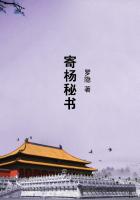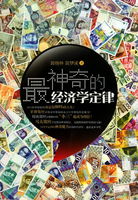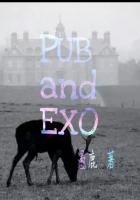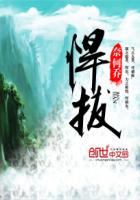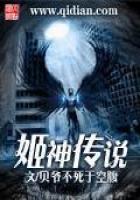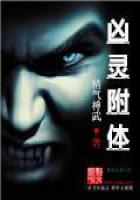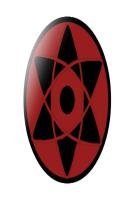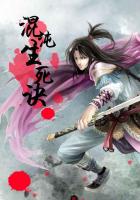During all this nomadic period of his life Ivan had never entirely severed his connection with his native village or with agricultural life. When about the age of twenty he had spent several months at home, taking part in the field labour, and had married a wife--a strong, healthy young woman, who had been selected for him by his mother, and strongly recommended to him on account of her good character and her physical strength. In the opinion of Ivan's mother, beauty was a kind of luxury which only nobles and rich merchants could afford, and ordinary comeliness was a very secondary consideration--so secondary as to be left almost entirely out of sight. This was likewise the opinion of Ivan's wife. She had never been comely herself, she used to say, but she had been a good wife to her husband. He had never complained about her want of good looks, and had never gone after those who were considered good-looking. In expressing this opinion she always first bent forward, then drew herself up to her full length, and finally gave a little jerky nod sideways, so as to clench the statement. Then Ivan's bright eye would twinkle more brightly than usual, and he would ask her how she knew that--reminding her that he was not always at home. This was Ivan's stereotyped mode of teasing his wife, and every time he employed it he was called an "old scarecrow," or something of the kind.
Perhaps, however, Ivan's jocular remark had more significance in it than his wife cared to admit, for during the first years of their married life they had seen very little of each other. A few days after the marriage, when according to our notions the honeymoon should be at its height, Ivan had gone to Moscow for several months, leaving his young bride to the care of his father and mother. The young bride did not consider this an extraordinary hardship, for many of her companions had been treated in the same way, and according to public opinion in that part of the country there was nothing abnormal in the proceeding. Indeed, it may be said in general that there is very little romance or sentimentality about Russian peasant marriages. In this as in other respects the Russian peasantry are, as a class, extremely practical and matter-
of-fact in their conceptions and habits, and are not at all prone to indulge in sublime, ethereal sentiments of any kind. They have little or nothing of what may be termed the Hermann and Dorothea element in their composition, and consequently know very little about those sentimental, romantic ideas which we habitually associate with the preliminary steps to matrimony. Even those authors who endeavour to idealise peasant life have rarely ventured to make their story turn on a sentimental love affair. Certainly in real life the wife is taken as a helpmate, or in plain language a worker, rather than as a companion, and the mother-in-law leaves her very little time to indulge in fruitless dreaming.
As time wore on, and his father became older and frailer, Ivan's visits to his native place became longer and more frequent, and when the old man was at last incapable of work, Ivan settled down permanently and undertook the direction of the household. In the meantime his own children had been growing up. When I knew the family it comprised--besides two daughters who had married early and gone to live with their parents-in-law--Ivan and his wife, two sons, three daughters-in-law, and an indefinite and frequently varying number of grandchildren. The fact that there were three daughters-in-law and only two sons was the result of the Conscription, which had taken away the youngest son shortly after his marriage. The two who remained spent only a small part of the year at home. The one was a carpenter and the other a bricklayer, and both wandered about the country in search of employment, as their father had done in his younger days. There was, however, one difference. The father had always shown a leaning towards commercial transactions, rather than the simple practice of his handicraft, and consequently he had usually lived and travelled alone. The sons, on the contrary, confined themselves to their handicrafts, and were always during the working season members of an artel.
The artel in its various forms is a curious institution. Those to which Ivan's sons belonged were simply temporary, itinerant associations of workmen, who during the summer lived together, fed together, worked together, and periodically divided amongst themselves the profits. This is the primitive form of the institution, and is now not very often met with. Here, as elsewhere, capital has made itself felt, and destroyed that equality which exists among the members of an artel in the above sense of the word. Instead of forming themselves into a temporary association, the workmen now generally make an engagement with a contractor who has a little capital, and receive from him fixed monthly wages. The only association which exists in this case is for the purchase and preparation of provisions, and even these duties are very often left to the contractor.
In some of the larger towns there are artels of a much more complex kind--permanent associations, possessing a large capital, and pecuniarily responsible for the acts of the individual members. Of these, by far the most celebrated is that of the Bank Porters.
These men have unlimited opportunities of stealing, and are often entrusted with the guarding or transporting of enormous sums; but the banker has no cause for anxiety, because he knows that if any defalcations occur they will be made good to him by the artel.
Such accidents very rarely happen, and the fact is by no means so extraordinary as many people suppose. The artel, being responsible for the individuals of which it is composed, is very careful in admitting new members, and a man when admitted is closely watched, not only by the regularly constituted office-bearers, but also by all his fellow-members who have an opportunity of observing him.

